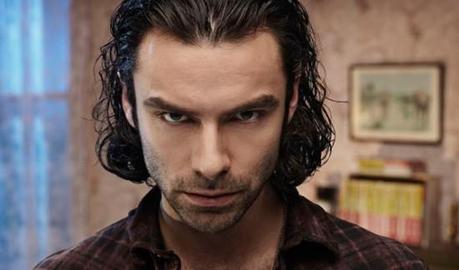The first series of the British “Being Human” came to a rousing conclusion that made the audience forget about most of the miscues of that season. The second series was somewhat less successful, coming to a strong climax too early in the story, leaving the ending a bit flat. I think it’s safe to say that the third series is closer to the first in overall flow and culmination.

Once the season managed to find its focus (after a handful of unnecessary diversions to set up a spinoff and such), it was like watching a massive pileup unfold in front of your eyes. You could see each new car coming at full speed, directly at the existing carnage, could anticipate the pain and suffering to come, but it was inevitable. And there was really only one way for it all to end.
The revelation that Lia had made up the prophecy about Mitchell and the “werewolf-shaped bullet” was brilliant, even if they overplayed that hand a bit. It would have been enough for Lia to explain how she implemented her revenge and then express her disappointment in the outcome, on her personal level. The whole creepy-clingy thing that followed was a waste of time better spent on setting up Mitchell’s fate.
Granted, it did provide something of an explanation for Nina’s survival, as Lia’s desire for a set of friends in the afterlife was addressed. Frankly, I would have rather they found another way to do that. And with the fourth series already hobbled by the loss of a main character, do they really need the constraints of the typical baby plots as well?
Still, this is mostly about Mitchell and the long downward spiral since his rampage at the end of the second series. Lia’s point is well made: she really didn’t need to do much to set Mitchell on the path to self-destruction. Mitchell was already pretty much on that path already; it was just a matter of stirring up the pot. In essence, Mitchell would have likely made the same choices without the fear and paranoia of the “wolf-shaped bullet”.
I’m also glad that he didn’t get the full measure of blame for Herrick’s actions. As mentioned often in the episode, the others were all implicated, on some level, because they harbored Herrick despite their misgivings. Part of it may have been their subconscious belief that if Herrick could be kept contained, Mitchell could be rehabilitated. But that’s Mitchell’s point in a nutshell: they were all living in denial regarding Mitchell’s true nature.
I thought it was very good writing to have Mitchell flail about, trying to find the one thing to say to convince George to take up the burden of killing his beloved friend. There were enough fake-outs up to that point to make it seem possible that Wyndham’s arrival would force Mitchell to postpone his death to fight the new and Even Bigger Vampire Bad. In a sense, Wyndham’s arrival drives home everything that Mitchell was trying to express, making the decision that much easier for George (and, in a way, taking the personal burden of the situation off his shoulders).
It’s a good sendoff for Mitchell, because it allows his death to have meaning and send a message. It tells the Old Ones that there will be a resistance to their design (which is, sadly, a bit of a retread of Herrick’s old line). But it also poses a problem. How in the world will three werewolves and a ghost combat a legion of super-powerful vampires, especially with a baby of unknown complications in the mix? It seems like this version of “Being Human” is tempting fate.
In my opinion, it undermines one of the key elements of the vampire-as-junkie metaphor. Mitchell’s struggle to overcome bloodlust and avoid taking responsibility for a massive fall off the wagon was fine; the implication that a lifelong addict’s only solution is suicide-by-proxy doesn’t quite deliver the right message. Granted, the supernatural elements demanded a more definitive consequence, but it’s still an unfortunate direction for the metaphor to take.
And it raises the question: how will they tackle that side of the equation without a central vampire character? All indications are that the series will focus on a smaller cast; this suggests George, Nina, and Annie with Tom as a recurring, along with other guest stars and villains. It just seems a bit too confined to me, especially when the American version has been excelling in comparison. If this finale is any indication, as good as it was, it may mark the moment when the American reboot took the reins from the British original in terms of the future of the concept.
Writing: 2/2
Acting: 2/2
Direction: 2/2
Style: 2/4
Final Rating: 8/10
(Series 3 Final Rating: 7.4)

